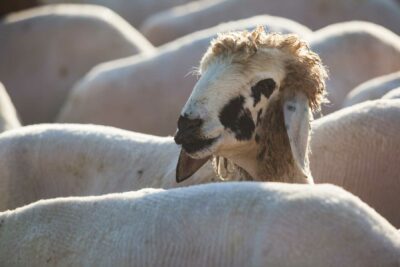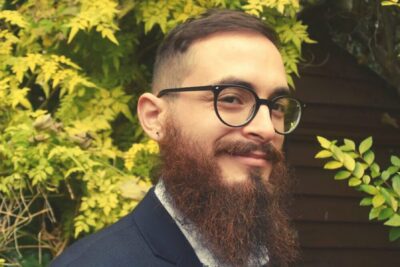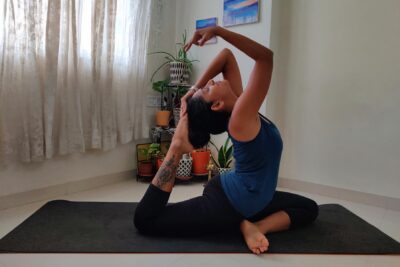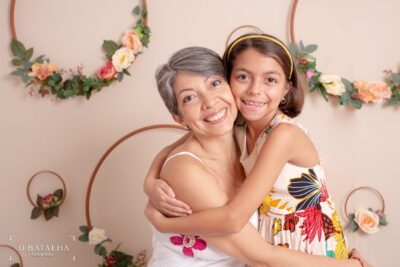A few short months after Ramadan – a month of spiritual rejuvenation and abstinence from indulgence – I humble myself before the Almighty’s nemat and observe Eid al-Adha or the “Feast of Sacrifice” free from extravagance and without causing any harm, to humans or other animals.
Guest blog by Farhat Ul Ain
I grew up in a traditional Muslim family in which meat was always on the table and goats and other animals grazed nearby. I loved these animals with all my heart: they were my playmates, my confidants, and my steadfast companions. They accepted me regardless of my species, school grades, or worldly status. As a child, I hadn’t made the connection yet that my animal friends were the same beings whose flesh eventually filled my family’s plates. That changed one Eid al-Adha when I saw my family slaughter Hoppu, my sheep friend (so named because he loved to hop around excitedly). The trauma of witnessing Hoppu’s death caused me to stop eating meat. So today, I honour the Almighty and all of his creations by making Eid al-Adha – and every day – vegan.
Much like the rest of the ummah, as a child, I learnt about Allah (SWT) appearing to Prophet Ibrahim (AS) in a dream and commanding him to sacrifice his dearest possession, his son Ismail (AS), as an act of obedience. In the test, Prophet Ibrahim (AS) valiantly set to submit to the Almighty’s mandate, but Allah (SWT) replaced Ismail with a ram, so Ismail (AS) was not harmed.
But anyone who has loved an animal knows that they are individuals like ourselves, who don’t want to die, either. Scientific studies have proved that all animals – not just humans – are intelligent beings who feel pain, love their families, and cherish their freedom. The Qur’an states that animals are communities unto themselves.
There are rules in Islam for reducing animal suffering during slaughter, as evidenced by a combination of Hadiths. And when Islam was born in seventh-century Arabia, factory farms did not exist. But now, most animals farmed for food, an estimated 70%, are reared within a factory farming system in which they are denied the expression of their natural behaviours and their experience is rife with pain and suffering. Today, the meat, egg, and dairy industries often cram thousands of animals into severely restrictive, filthy cages, crates, or waste-ridden sheds, denying them their freedom and any semblance of a normal life. Workers commonly inject them with drugs, separate babies from their mothers, deny them proper veterinary care, and mutilate them without painkillers. What’s more, countless male calves and chicks are killed simply because they cannot produce milk or eggs. This blatant cruelty goes against the Prophet Muhammad (PBUH)’s teachings. One Hadith quotes him as saying, “A good deed done to an animal is as meritorious as a good deed done to a human being, while an act of cruelty to an animal is as bad as an act of cruelty to a human being.”
The root word of “Islam” itself means “peace”, and choosing vegan food, which leaves animals in peace, during this coming Eid and throughout the year is the ultimate good deed not just for animals but also for our health and the health of the planet. Indeed, the Prophet Muhammad (PBUH) mostly consumed dates and barley, and his cousin, Ali (SWT), is reported to have stated, “Do not make your stomach a graveyard of animals”. The University of Oxford researchers have found doing away with meat and dairy foods can reduce an individual’s carbon footprint from food by up to 73%, and the Academy of Nutrition and Dietetics says vegans are at reduced risk of certain health conditions, including ischemic heart disease, type 2 diabetes, hypertension, and various forms of cancer.
I’ve found that celebrating a vegan Eid al-Adha deepens my spiritual connection and I feel joy sharing with others in ways that cause no harm.
Now, my family celebrates the mercy of Allah by using our money to donate to orphanages, the impoverished, educational institutions, and homes for the elderly instead of slaughtering goats whose lives are as dear to them as ours are to us. Making Eid a sacrifice of one’s prosperity also makes sense in the long-term: donating the meat to the poor will only feed them for a day, but assisting people in starting a small business or improving their education will help ensure that they have food to eat every day.
This Eid, my family will gather around the dastarkhwan and dine on vegan foods such as sevaiyan, samosas, shahi tukda, pulao, and cashew-cream korma. I hope that your kitchen will also be filled with the fragrance and colours of a vegan feast. Please join me in promoting kindness to all of Allah’s creations and have a truly auspicious and vegan celebration. Eid Mubarak!
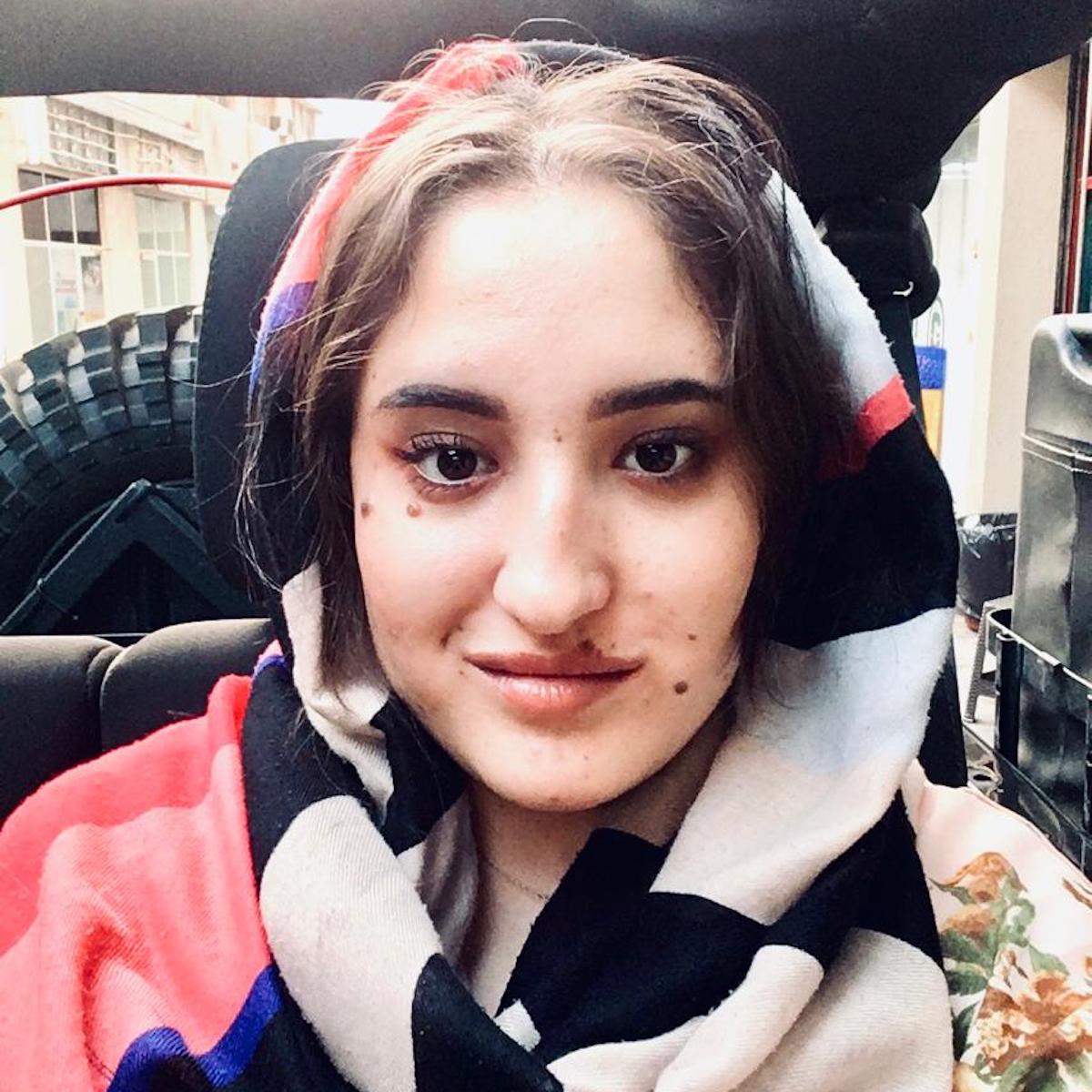
Farhat Ul Ain is an Advocacy Officer with People for the Ethical Treatment of Animals (PETA) India.
